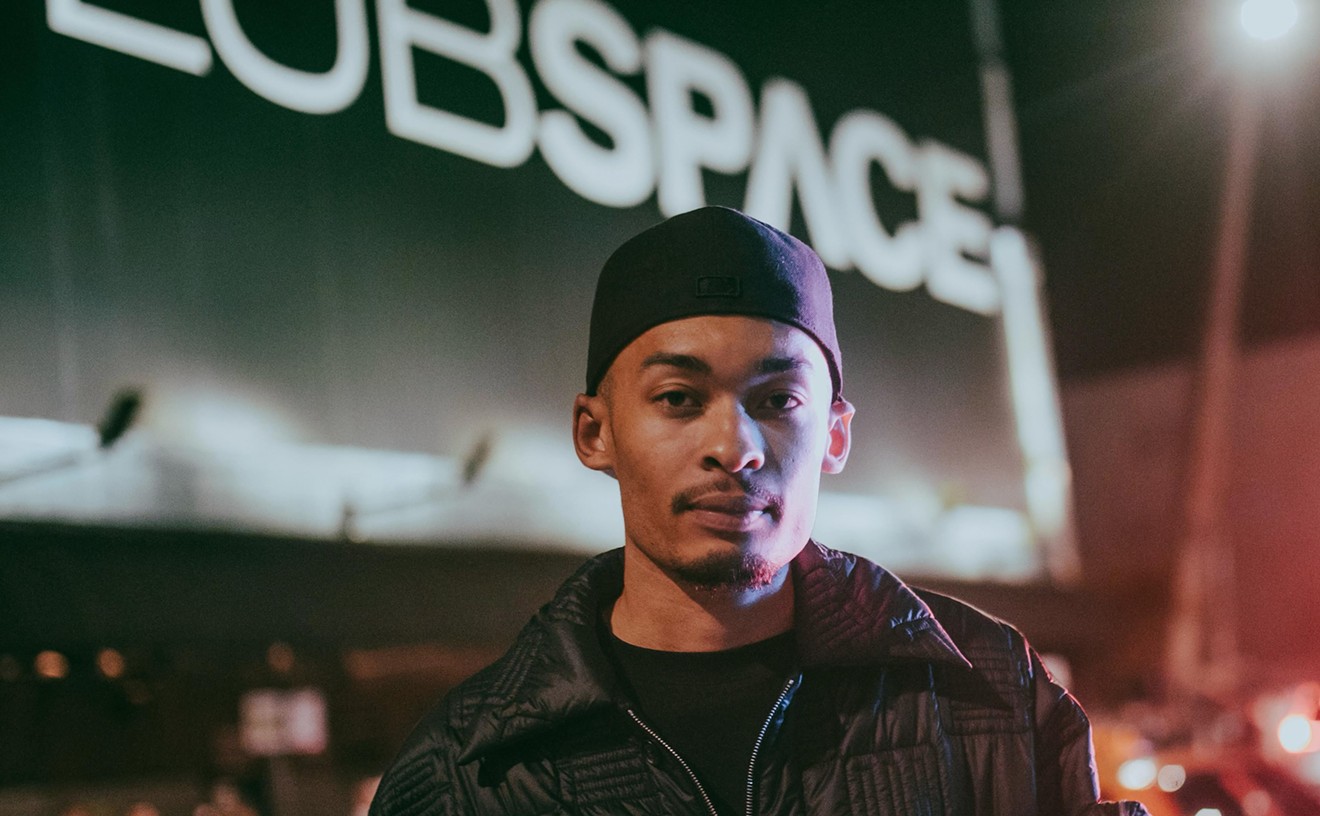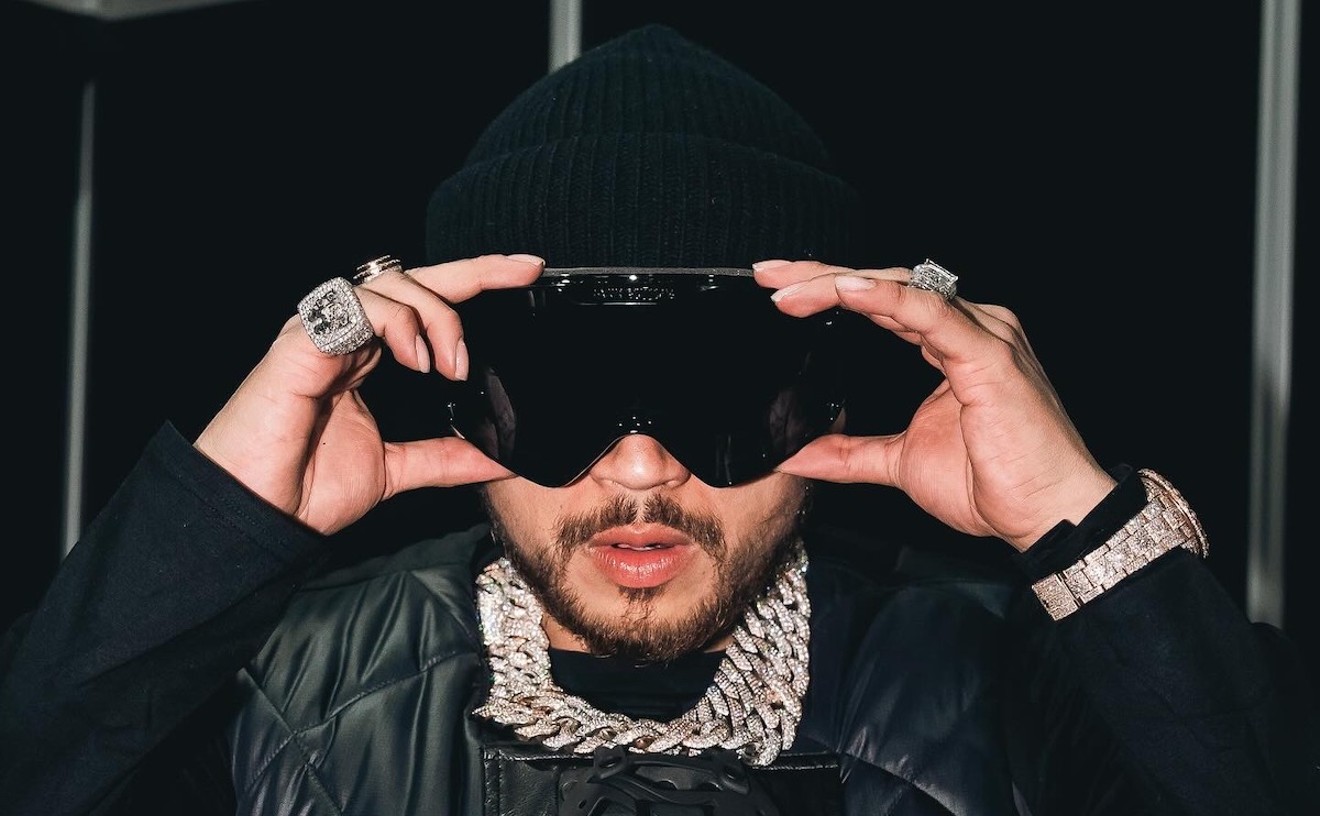"They've created the party that they want to go to themselves." That's DJ/remixer Nick Catchdubs, talking about the folks behind Miami's own Poplife. Catchdubs knows of what he speaks: He is a cofounder of the notoriously successful indie dance label Fool's Gold and has spun at nearly every hot spot on the planet. That includes, of course, a number of collaborations and appearances with the Poplife team. And of all the places in the world where he's spun, the vibe at the Magic City's ten-year-running party still impresses: Poplife has "built a community around [a] night," and the people there "absolutely love to party."
Launched back in 1999, the weekly Saturday bash Poplife has outlasted, outblasted, and outpartied every other stand-alone event in town. But Poplife is not just some party; it's a decision. A decision to live life not as it's served, but as you would serve it — in all its wild variety.
That seemed to be the gist of the big idea back then, when two couples came together and began throwing parties at the now-defunct gallery/café Mezza Fine Art in Coral Gables. The pairs were Barbara Basti and Aramis Lorie, and Ray and Paula Milian, longtime friends with a yen for hanging by night. Thing is, in those days Miami nightlife was based on cultural extremes. And so the four had come to the conclusion that if they wanted a place where they would want to hang, they'd have to make it happen themselves.
"Miami wasn't that diverse back then," Basti says. "It was either mainstream or goth — nothing in between. There certainly wasn't a place for our gang of Anglophiles." So the Poplife folks chose Britpop over bass, indie over aggro, and invited all of their friends. A year later, they'd outgrown the Gables and headed for the Design District, where they set up shop in what was then Piccadilly Garden, on NE 40th Street.
"The Design District still had yet to blossom," Lorie says. "But people didn't seem to mind. Actually, they kinda liked having to go out of their way a bit." In addition to its relative geographic isolation, Piccadilly had the extra benefit of an adjacent room. So Poplife added some underground hip-hop to the equation. And in 2000, that meant DJ Induce, a just-breaking beatster who came up on the street side of vinyl.
"I was the classic hip-hop cat back then," Induce says. "And Poplife gave me their side room to do as I pleased." And what he did apparently pleased many, all of whom packed his room as if the Second Coming had gone. It also pleased the Poplife folks, who dug the diversity almost as much as they dug Induce. And to this day, the DJ remains part of the crew.
It was around this time when Poplife started becoming more of a brand, and Basti, Lorie, and company began booking live performances by the artists whose records they spun. Soon they turned Allapattah's Polish-American Club into a forum for some of the best and the brightest indie and dance acts ever to grace either stage or turntable. Le Tigre, Peaches, Of Montreal, Trans Am, the Faint, Cursive, and Modest Mouse are just a few who swung through there on their way up — a hot list of anti-hit-makers. And Miami again rejoiced.
In 2003, the Poplife team took an even more pronounced stab at legitimacy by opening the now-defunct club I/O, near the corner of NE 14th Street and North Miami Avenue. There they continued to book up-and-coming indie superstars such as Ratatat, Rilo Kiley, Animal Collective, Rainer Maria, Mates of State, and Cat Power.
And it was there where they fully perfected their formula of going into a forgotten neighborhood and making it a destination. The Gables had been but a forgotten burb, and the Design District was on the cusp of rebirth. But the particular stretch of downtown that housed I/O was nothing more than a route into bedlam. A good place for crack whores and the people who rob them, perhaps, but not much more.
Poplife people got off on all the desolation, though. And while I/O was roaring, Lorie and Basti grabbed the latter's brother Brian and then went next door and opened up PS14. "We wanted to create another option," Lorie says, "more of a neighborhood bar that books local bands." We won't even begin to try to list the thousands of bands that have graced the stage at PS14, but we will tell you the club was where M.I.A.'s former DJ Contra met Santigold. We'll also tell you Contra continues to back up Santi to this day.
A glitch with I/O around 2006 then found Poplife back at the old Piccadilly space, by now called the District, where they continued to bring in high-caliber acts such as Jamie Lidell and Spank Rock. It was then when Lorie and Basti recruited everybody's favorite night crawler, Jake Jefferson.
"I used to sneak into Poplife when it first was at Piccadilly," Jefferson says. "It was the one party in town I never missed — ever." Jefferson has been with Poplife full-time ever since (Ray and Paula Milian had made quiet exits sometime before).
Basti, Lorie, and Jefferson still seem to instinctively know just what works — when, where, and why — and capitalize on it without breaking a sweat. Yet for all of their cool, they are undoubtedly three of the hardest working operatives in the business.
"Folks don't realize what it takes to keep a weekly party going," Lorie says. "From staying on top and booking the best new bands and maintaining close ties with and bringing down the world's most notable DJs, to something as simple as décor. It takes a lot of work."
Lorie, in fact, says this amid the bustle at Ecco, a downtown Miami eatery that he and Barbara and Brian Basti just opened with two other sets of partners. Like Poplife's parties, it's in a hood that had long since seen its day. And like other Poplife ventures, the joint is an immediate success, crowded with the usual suspects (mainland hipsters) as well as Miami's white-collar contingent, all of whom seem to become instantly hipper the minute they cross the threshold.
And beyond all the expansion into venues, Poplife has also of late branched out its promotion effort, lending its sheen of cool to LIV on Wednesdays and Rok Bar on Thursdays. But still, the main event is the Poplife party itself, which moved last year to White Room, just around the corner from PS14.
Poplife was part of White Room's roster from the venue's get-go. In fact, White Room itself almost was a Poplife property, but Lorie had other plans then. And when White Room owners Luis Fonseca and Rene Rigau expressed interest in nabbing the spot, Lorie handed it off. "I've known Luis for 16 or 17 years," Lorie says. "And I knew he and Rene were looking for a space. At the time, I had too much going on to give it my full attention. So I set up my friends."
And they, in turn, turned to Poplife to brand their Saturday nights. "Aramis and Ray [Milian] used to spin in my back yard before the days of Poplife. So I like to think it all started at my house," Fonseca says, laughing. "It is only natural it ends up at White Room some years later."
Ten years later, to be exact. For this week will mark a decade of the party people making the place to be. Traditionally, the tenth anniversary is aligned with tin or aluminum; in modern times, it's all about diamonds. And both make for a nice metaphor of the brand.
Think about it: Like a tin can, Poplife is a conveyance for something refreshing, be it bubbly or loaded. And like diamonds, it sparkles in a way only something truly organic can sparkle.
But metaphor-stretching aside, there'd be no tenth anniversary if the Poplife people didn't maintain their uncanny ability to change before the times and to think on their feet. "It is never just about hammering the same routine party," says White Room's Rigau. "It's always changing, evolving." Indeed, it does: Poplife is here for today, and for tomorrow.










